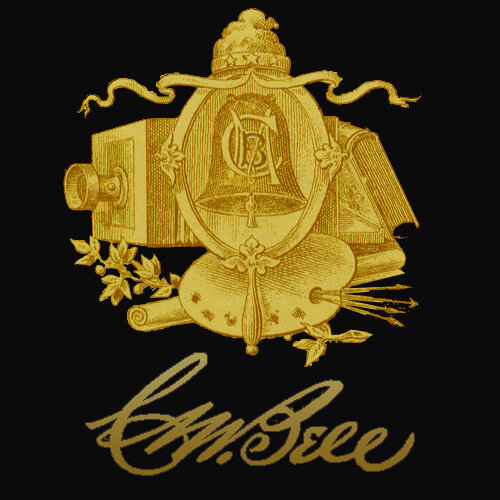
Reaching across the Racial Divide: Douglass to Benjamin Auld
Reaching across the Racial Divide: Douglass to Benjamin Auld | by David S. Reynolds
At seventy-six Frederick Douglass could look back on a life of singular distinction. Having escaped from slavery at twenty, he had gone on to become a celebrated reformer, orator, newspaper editor, and author. During the Civil War he had helped improve the treatment of black soldiers and had enlightened Lincoln on the issue of race. He later had promoted African American suffrage and the North’s program of Radical Reconstruction. When that program collapsed in 1876, he led the movement against racial discrimination. His abilities won him government appointments, including an ambassadorship to Haiti. All along, he conducted himself with courage and dignity. A tall man of majestic bearing, he possessed undeniable magnetism.
One personal issue plagued him. He did not know his birthday. A letter of March 24, 1894, written to Benjamin Auld, the son of Douglass’s master, has a special poignancy. Since many slaves, including Douglass, were the product of illicit unions between white slaveholders and female chattels, birthdays and parentage were often kept hidden. As he writes to Auld, “I have always been troubled by the thought of having no birth day.” 1
The scraps of information he assembles in the letter led him to conclude that he was born in 1817. We now know that he was off by one year. Douglass was born in February 1818 on Maryland’s Eastern Shore, where he was owned by Aaron Anthony. When he was eight he was transferred to the family of Hugh Auld, a ship carpenter in Baltimore, where Douglass served as a domestic slave for seven years.
The 1894 letter to Hugh’s second son, Benjamin, fills out our understanding of this crucial period in Douglass’s life as a slave. On the Baltimore streets white bullies constantly attacked Douglass. As he puts it, “Jim Teel and other big bad boys would set upon me & beat me.” He adds with stirring understatement, “I however got along pretty well and soon learned to defend myself.” Even as a boy, then, Douglass had the fighting spirit that later drove his memorable fistfight with the cruel overseer Edward Covey. The letter also shows Douglass’s affection for decent whites. Douglass mentions Auld’s “kind mother,” Sophia Auld. Readers of Douglass’s autobiography recall that Sophia was instinctively gentle with the young Frederick, astounding him with her goodness. She taught him his ABCs. Reading, in turn, contributed to his emancipation. The more he learned, the more eager he was to escape from slavery. He did so in September 1838, traveling north by train and boat disguised as a sailor.
Perhaps the most telling feature of the letter to Benjamin Auld is its gracious tone. Note the genial statements: “My dear sir and friend”; “you have made me deeply obliged to you”; “I value your letter highly”; “I give you my thanks and the assurance of my high Respect, esteem and best wishes for you and all who are dear to you.” Why did Douglass express friendship to a man whose family had once held him as a slave?
The answer lies in Douglass’s ceaseless effort to replace division and enmity with unity and comradeship. He had long called for the integration of whites and blacks. Here he differed from many others. Thomas Jefferson, Abraham Lincoln, and Harriet Beecher Stowe had all stated that blacks should be shipped abroad once they were emancipated due to allegedly innate racial differences. Black separatists like Henry Highland Garnet and Martin Delany advocated colonization for a different reason: so that blacks could found a nation of their own, independent of oppressive whites. After the failure of Reconstruction, disillusioned blacks known as Exodusters moved to Kansas to create all-black towns.
Douglass felt that such separation of whites and blacks dodged the race issue and created gross injustice. He affirmed the assimilation of blacks into mainstream society. He did what he could to reach across the racial divide, even when it meant embracing the son of his former master. @@@@@There is a sad irony about his friendly letter to Auld. It was written when America was moving toward the legalized segregation of blacks and whites. On February 20, 1895, less than a year after the Auld letter, Douglass died of a massive heart attack or stroke. The next year, Plessy v. Ferguson established the “separate but equal” doctrine that sped the rise of Jim Crow.
It would not be until the Civil Rights Movement of the 1960s that Douglass’s dream of equal justice for all would be revived on a wide scale. Even today, this dream is not yet fully realized.
Transcript of a letter from Frederick Douglass to Benjamin F. Auld, March 24, 1894
Mch: 24 1894
Capt. B F. Auld.
My dear sir and friend:
By the pains you have taken to obtain for me the date when your father began ship building in company with Mr Edward Harrison on the city Block you have made me deeply obliged to you. Should it ever be in my power to render you alike service or any other service, I beg you will not hesitate to call upon me. I value your letter highly– I think however, that Mr Dorgan is mistaken. It must have been as early as 1827. When your father went into business on the city B. and I must have been eight years old when I came to Baltimore in 1825 to look after your Brother Thomas. I know the date because Capt Anthony my master died in that year and I was there in Baltimore. I was big enough to bring a good sized bucket of water from the pump on Washington Street to our house on Allisana Street where your father lived– and to carry your father’s dinner from there to Dorgan & Bailey’s ship yard where he was then employed. The only fear your kind mother then had in sending me was that Jim Teel and other big bad boys would set upon me & beat me. I however got along pretty well and soon learned to defend myself. We however, soon moved from Aliceana Street to a house that belonged to Dr Allender on Philpot Street near the entrance to Dorgan & Baileys ship yard. Gustavus who I am sorry to learn by your letter is in feeble health was then in the clothes of a very small boy– not big enough to send to school. The principle thing I desired in making the inquiries I have of you was to get some idea of my exact age. I have always been troubled by the thought of having no birth day. My Mistress Lucretia Auld said that I was eight or nearly eight when I went to Baltimore in the summer of 1825– and this corresponds with what you have heard your kind mother say on the subject. So I now judge that I am now about 77-years old. I am further confirmed in this because Mrs Amanda Sears was born Jan: 28. 1826. and that was after I went to live with your Father and Mother in Baltimore. In 1826. I was sent from Baltimore to Hillsboro– where your uncle Thomas lived– to be divided with the other property among the heirs– I was much exercised as to my fate. The thing I feared most was that I might fall to a branch of the family unfriendly to sending me back to my good home in Baltimore. Happy I was when I was told that I was the property of Mrs Lucretia for then I felt sure that I should go back to Baltimore to my good home. But my dear sir: You are a man of business and I must not take up your time further. I give you my thanks and the assurance of my high Respect, esteem and best wishes for you and all who are dear to you.
Frederick Douglass


